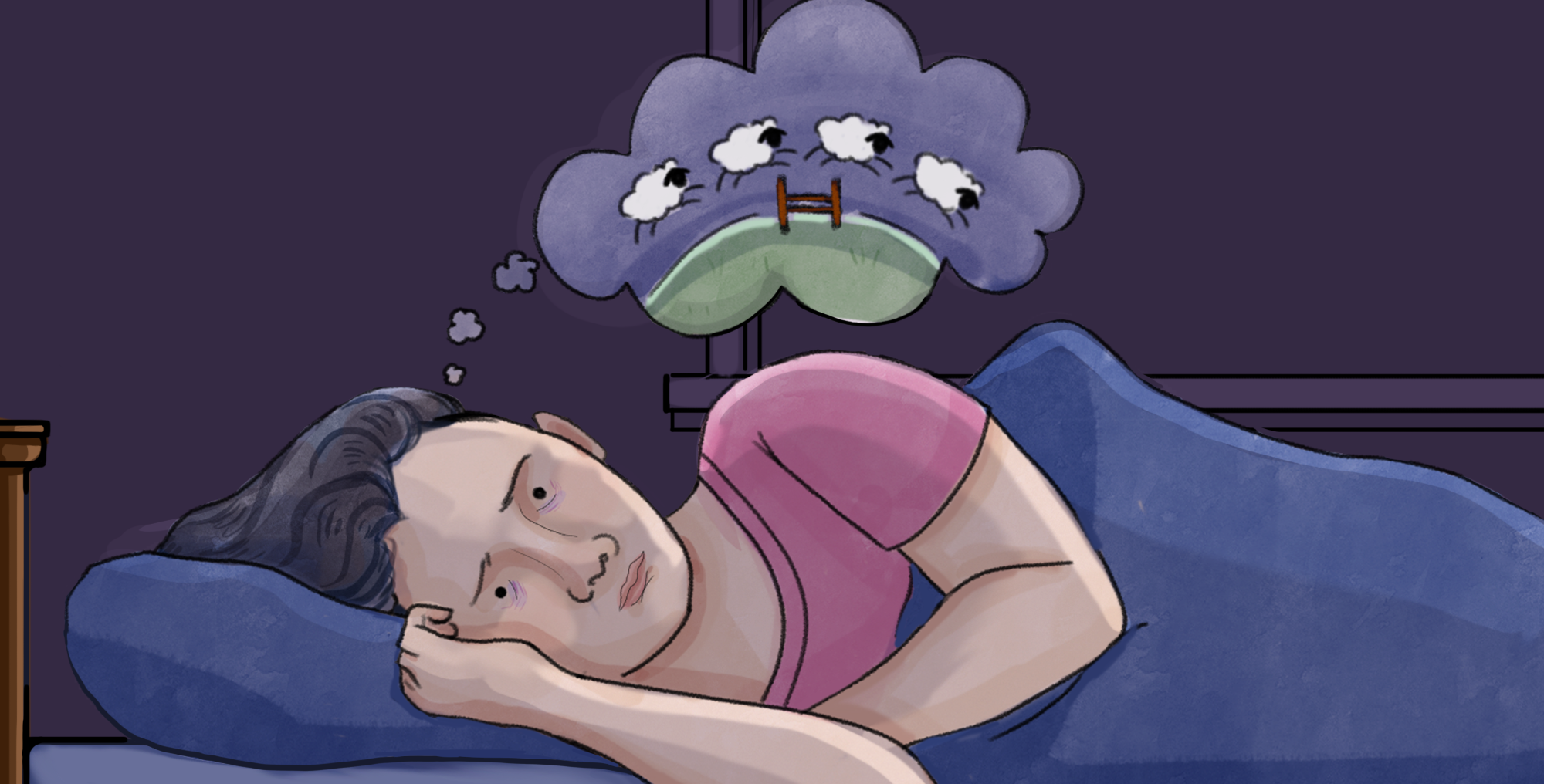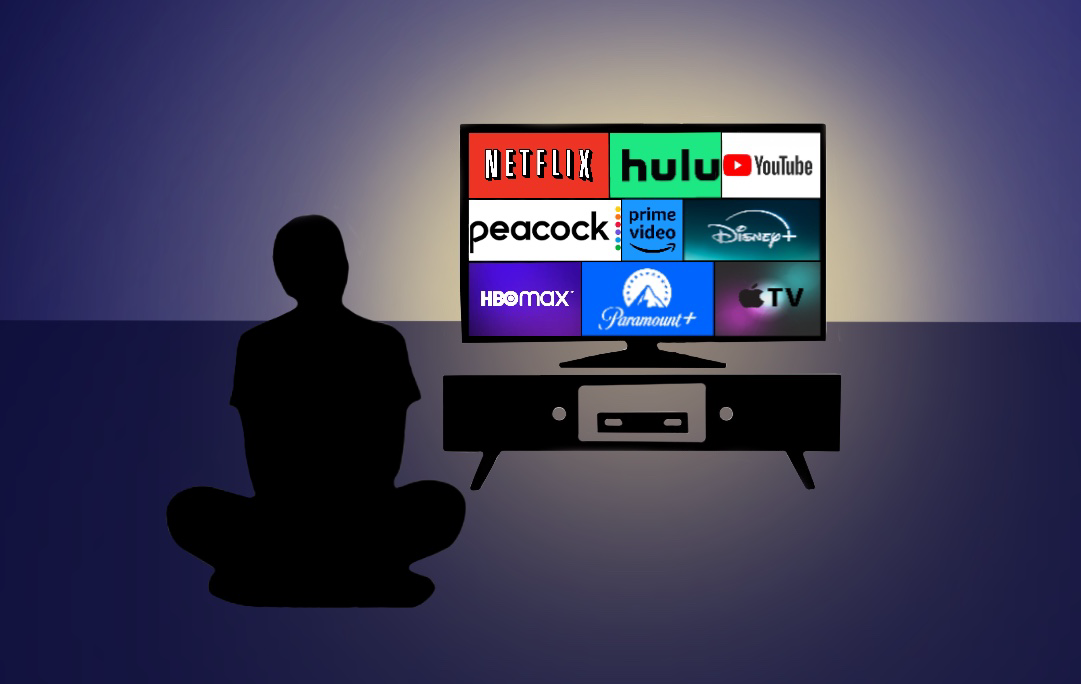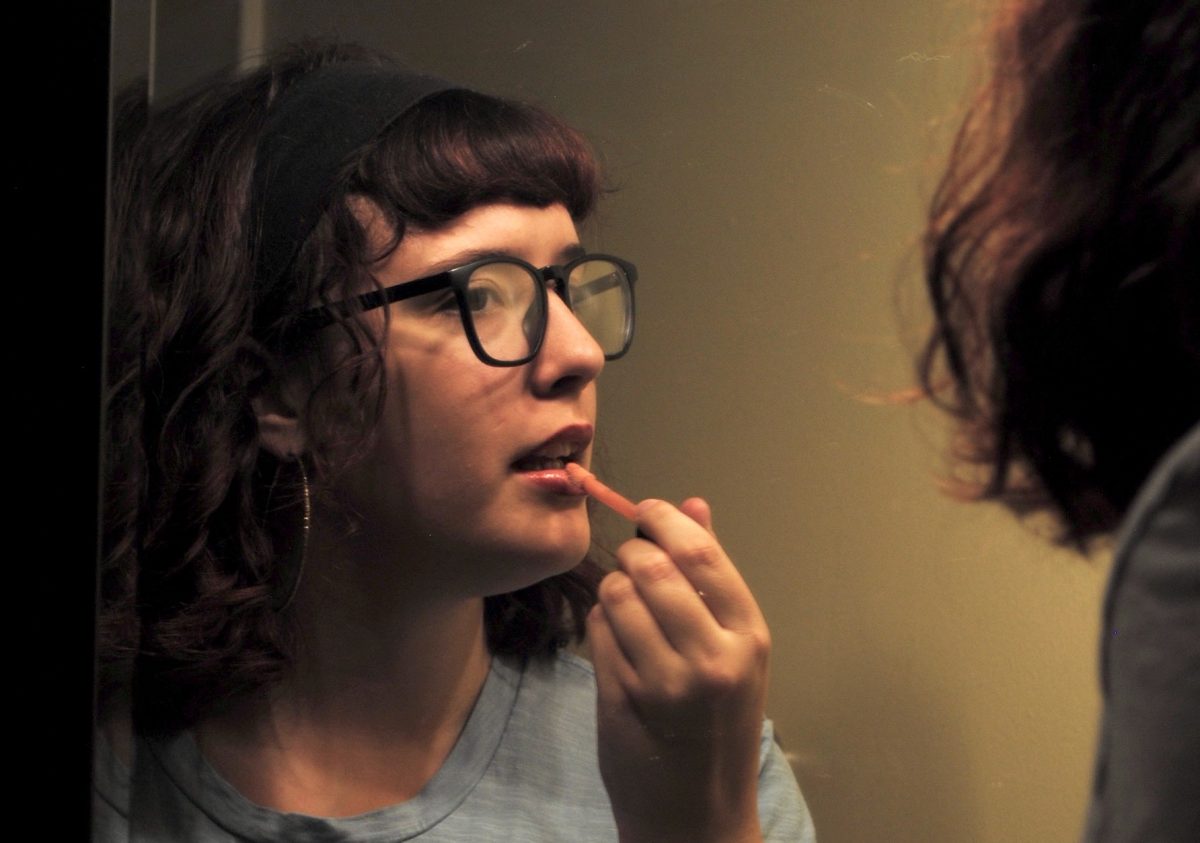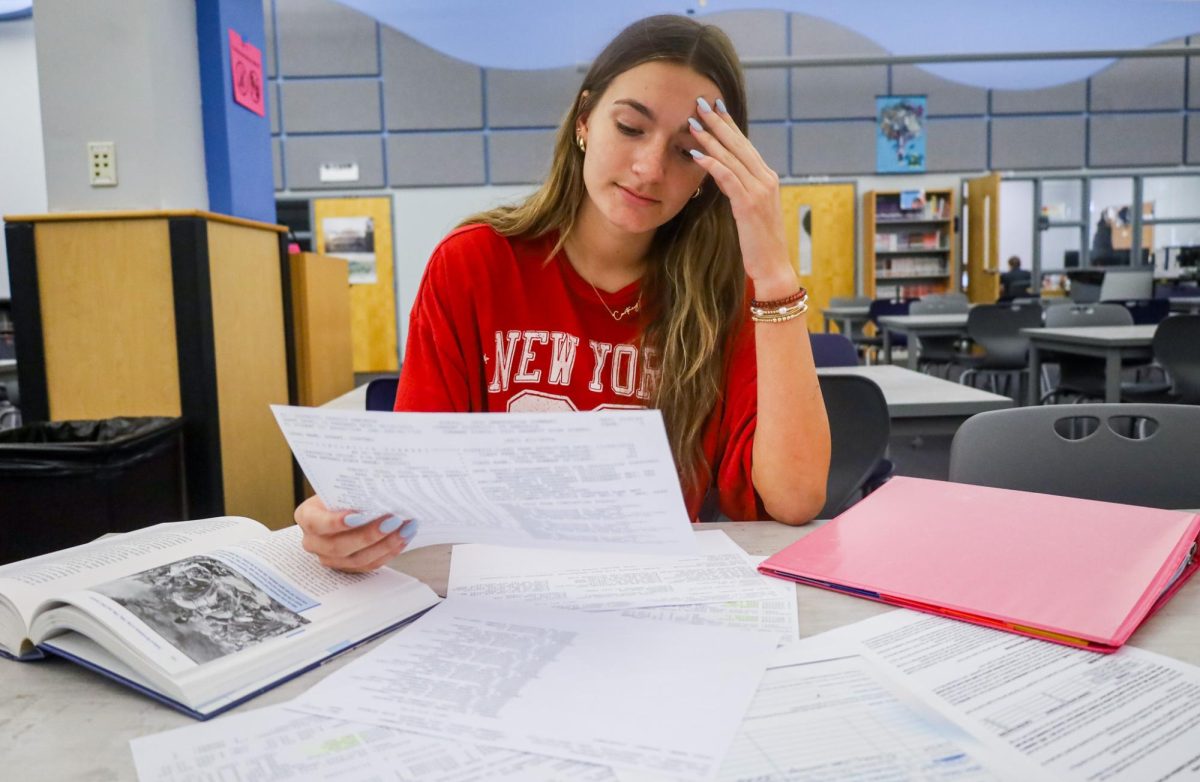
Sleep tight
Sophomore Eva Kavaja has trouble sleeping two to five days a week. In addition to her daily wrestling practices, Kavaja takes a course load of mainly AP and honors courses, all of which can pile up.
“I always have a lot of homework. It can cause a lot of stress and worry, but I try my best to work really hard [and] be a good student,” Kavaja said.
Freshman Sofia McLaughlin has a similar experience, as she often struggles to sleep due to the stress of school. Averaging five to seven hours of sleep, she has had problems falling asleep most nights since the beginning of the year.
“I feel like I have a lot of thoughts going and I’m not really able to quickly fall asleep. One time, I was tired and slept through my entire biology class and I couldn’t understand the material for the rest of the quarter,” McLaughlin said.
Freshman Makayla Nelson has struggled to get the hang of a high school schedule. During her first exam, she became overly stressed and had a restless night leading to the test. She was not able to focus, affecting her performance.
“It was just a lot because I had never taken an exam before, and it affected my work in some of my harder classes. I feel like I could’ve done better if I slept more the days leading up to it,” Nelson said.
Screen time from cell phones also plays a large role as to why students can’t sleep.
“I think I would get better sleep if I limited my screen time. I might be more focused and complete my homework earlier so I can go to bed earlier,” junior Emiaj Jaime said.
Jaime also noticed a decrease in her sleep due to an injury. After fracturing her collarbone and having surgery, she noticed a discomfort that does not let her sleep. While her injury has affected her sleep, as the injury heals she is returning to a regular sleep schedule.
Kapsimalopoulos’s situation is a bit different. Averaging three to six hours of sleep on a weekday and seven to 10 hours on weekends, she finds herself in a cycle of exhaustion. However, her sleep issues are not stress-related. In the eighth grade, Kapsimalopoulos suffered a back injury during a dance practice. Overlooking the pain, she never had the injury checked, which has led her pain to grow and impact her sleep.
“My back pain is a contributing factor to why I can’t go to sleep at times. Recently, I’ve been having on and off, horrible back issues,” Kapsimalopoulos said.
With this pain, it takes her about two hours to go to sleep. Although she is able to catch up on sleep, it is still not enough.
“I have to schedule naps throughout my day because if I don’t I won’t be able to function after 4 p.m. and I work and do extracurricular activities,” Kapsimalopoulos said
A common way sleep-deprived teenagers deal with sleep issues is using naps to get extra rest; however, this ends up backfiring, as it causes them to not feel tired when it’s time for bed.
“After a rough night, I go to school and I’m really tired. Then I take a two-hour nap, and I can’t fall asleep a few hours later. It starts a cycle,” junior Hyatt Hitt said.
According to Harvard Health, napping can be a large source of restlessness at night. This disrupts one’s sleep schedule and ends up causing a vicious cycle of low-quality sleep.
A more beneficial method to combat sleep issues is listening to music or calming sounds as a way to relax. Sounds such as ASMR or white noise are popular forms of this method. Many frequent users feel calmer once they listen to them, helping them to get more sleep.
“I have a sound machine in my room and it’s absolutely improved my quality of sleep. I’ve struggled with being able to fall asleep in a silent room since I was a kid,” junior Tracelyn Witsell said. “Instead of leaving the TV on, which I’ve heard can disturb REM sleep patterns, I looked into getting this sound machine.”
Nelson takes advantage of listening to music as well,
“I start my pre-sleep routine by putting my phone away because it easily distracts me. I listen to music or white noise while reading to really help me relax before bed, and that usually works and helps me sleep every night,” Nelson said.
For those who like to sleep in quiet environments, sleepy teas are a great method to try. Herbal teas have been proven to reduce fatigue and induce relaxation and sleep. Popular types of tea such as chamomile and lemongrass are shown to be a holistic way to improve sleep quality and overall well-being, Senior Rylee Bader frequently uses tea when she is unable to fall asleep.
“I drink chamomile tea when I’m feeling extra tired and find it difficult to fall asleep. It usually helps me fall asleep in a few minutes, as opposed to laying in bed for hours,” Bader said.
Some students may resort to taking supplemental melatonin as a last resort. According to the Mayo Clinic, melatonin is a naturally occurring hormone in the body that plays a role in sleep. Melatonin supplements increase feelings of drowsiness within about an hour of taking them.
“It takes me half the amount of time to fall asleep when I take a melatonin supplement as opposed to when I don’t, and I sleep much longer. It has been so helpful in improving my sleep quality,” Kapsimalopoulos said.
While melatonin supplements may seem like the easy route to take, there are some drawbacks. For starters, excessive use can lead to headaches, nausea and extreme fatigue. Also, regular, long-term usage can limit the effectiveness of the supplement and could end up impacting natural melatonin production.
“I’ve heard about all of the side effects [of melatonin] and I’ve just thought it better to stay away from it,” Nelson said. “I don’t want to become dependent on the supplement, or have it potentially prohibit me from being able to sleep every night.”
While sleep is an important factor for any student, the benefits continue through adulthood. Anatomy and yoga teacher Brandi Malkovich takes her sleep routine seriously and knows the importance of getting good sleep.
“Quality sleep is absolutely essential to maintaining physical and mental health and is the most important thing anyone can do for their body,” Malkovich said. “Students who don’t get enough sleep are often dysregulated from too much blue light and phones, too much sugar, a late athletic game, staying up to do homework, or don’t get enough exercise.”
Students who get ample sleep can have improved learning, an easier time making decisions, better emotional well-being, boosted moods, lower risk of diseases, better immune function and increased performance compared to those with sleep deficiencies, according to the National Heart, Lung and Blood Institute.
“I stay off the phone in the evening, stop eating when it gets dark, and try to limit my intake of processed sugar. I sometimes read or sit with my kids and read or draw with them, then I go to bed at 9 p.m.,” Malkovich said.
While skipping out on some sleep to finish one last homework assignment may sound like a promising idea to teens, this can form a harmful pattern that can affect one’s overall health. According to the National Heart, Lung and Blood Institute, the way one feels while awake partially depends on their sleep quality. During sleep, the body is working to support healthy brain function and maintain your physical health.
“When I sleep fewer hours, I can feel the importance of proper rest. It really impacts my mood and my focus in class,” Nelson said.
Your donation will support the student journalists of Hagerty High School. We are an ad-free publication, and your contribution helps us publish six issues of the BluePrint and cover our annual website hosting costs. Thank you so much!

















